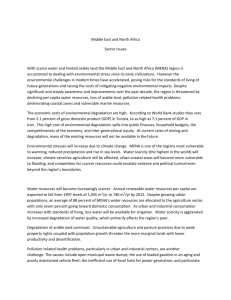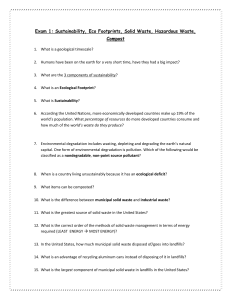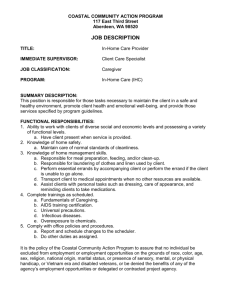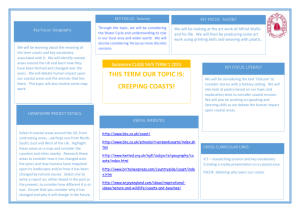Carbon Finance Instrument to Improve Coastal Zone Solid Waste
advertisement
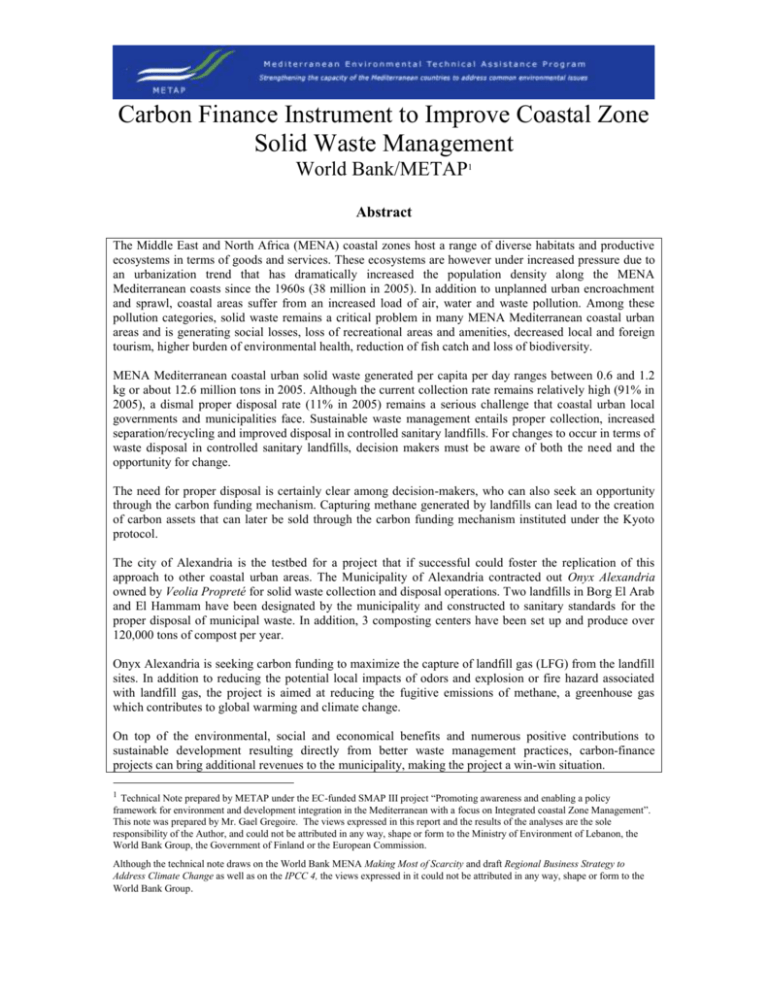
Carbon Finance Instrument to Improve Coastal Zone Solid Waste Management World Bank/METAP1 Abstract The Middle East and North Africa (MENA) coastal zones host a range of diverse habitats and productive ecosystems in terms of goods and services. These ecosystems are however under increased pressure due to an urbanization trend that has dramatically increased the population density along the MENA Mediterranean coasts since the 1960s (38 million in 2005). In addition to unplanned urban encroachment and sprawl, coastal areas suffer from an increased load of air, water and waste pollution. Among these pollution categories, solid waste remains a critical problem in many MENA Mediterranean coastal urban areas and is generating social losses, loss of recreational areas and amenities, decreased local and foreign tourism, higher burden of environmental health, reduction of fish catch and loss of biodiversity. MENA Mediterranean coastal urban solid waste generated per capita per day ranges between 0.6 and 1.2 kg or about 12.6 million tons in 2005. Although the current collection rate remains relatively high (91% in 2005), a dismal proper disposal rate (11% in 2005) remains a serious challenge that coastal urban local governments and municipalities face. Sustainable waste management entails proper collection, increased separation/recycling and improved disposal in controlled sanitary landfills. For changes to occur in terms of waste disposal in controlled sanitary landfills, decision makers must be aware of both the need and the opportunity for change. The need for proper disposal is certainly clear among decision-makers, who can also seek an opportunity through the carbon funding mechanism. Capturing methane generated by landfills can lead to the creation of carbon assets that can later be sold through the carbon funding mechanism instituted under the Kyoto protocol. The city of Alexandria is the testbed for a project that if successful could foster the replication of this approach to other coastal urban areas. The Municipality of Alexandria contracted out Onyx Alexandria owned by Veolia Propreté for solid waste collection and disposal operations. Two landfills in Borg El Arab and El Hammam have been designated by the municipality and constructed to sanitary standards for the proper disposal of municipal waste. In addition, 3 composting centers have been set up and produce over 120,000 tons of compost per year. Onyx Alexandria is seeking carbon funding to maximize the capture of landfill gas (LFG) from the landfill sites. In addition to reducing the potential local impacts of odors and explosion or fire hazard associated with landfill gas, the project is aimed at reducing the fugitive emissions of methane, a greenhouse gas which contributes to global warming and climate change. On top of the environmental, social and economical benefits and numerous positive contributions to sustainable development resulting directly from better waste management practices, carbon-finance projects can bring additional revenues to the municipality, making the project a win-win situation. 1 Technical Note prepared by METAP under the EC-funded SMAP III project “Promoting awareness and enabling a policy framework for environment and development integration in the Mediterranean with a focus on Integrated coastal Zone Management”. This note was prepared by Mr. Gael Gregoire. The views expressed in this report and the results of the analyses are the sole responsibility of the Author, and could not be attributed in any way, shape or form to the Ministry of Environment of Lebanon, the World Bank Group, the Government of Finland or the European Commission. Although the technical note draws on the World Bank MENA Making Most of Scarcity and draft Regional Business Strategy to Address Climate Change as well as on the IPCC 4, the views expressed in it could not be attributed in any way, shape or form to the World Bank Group.



